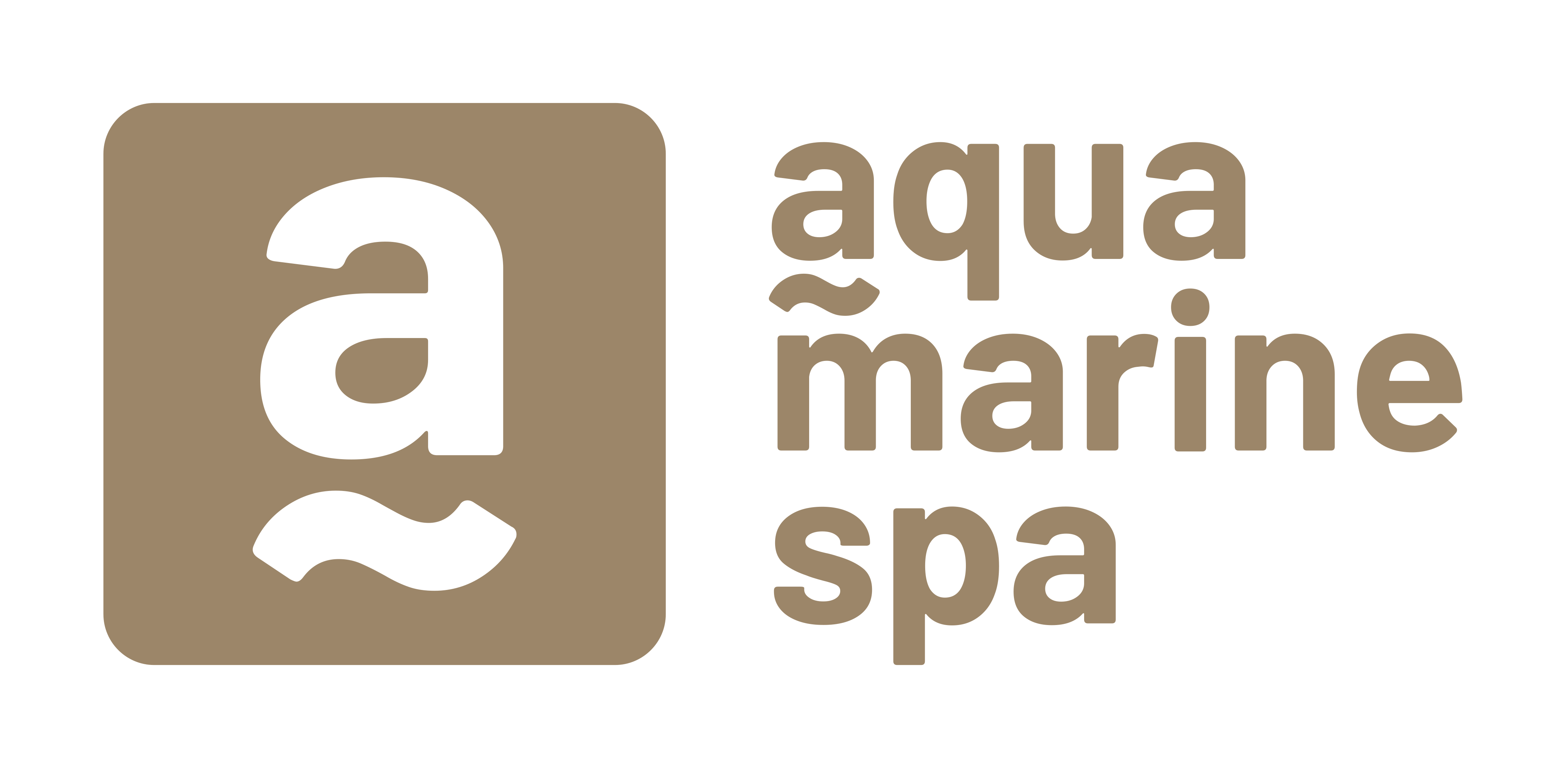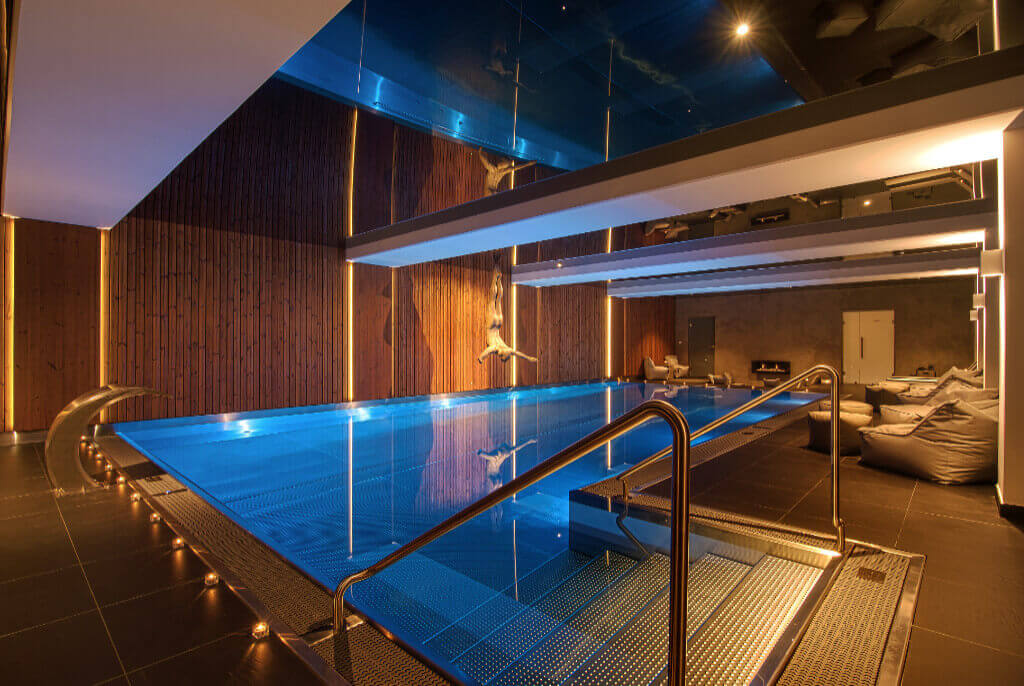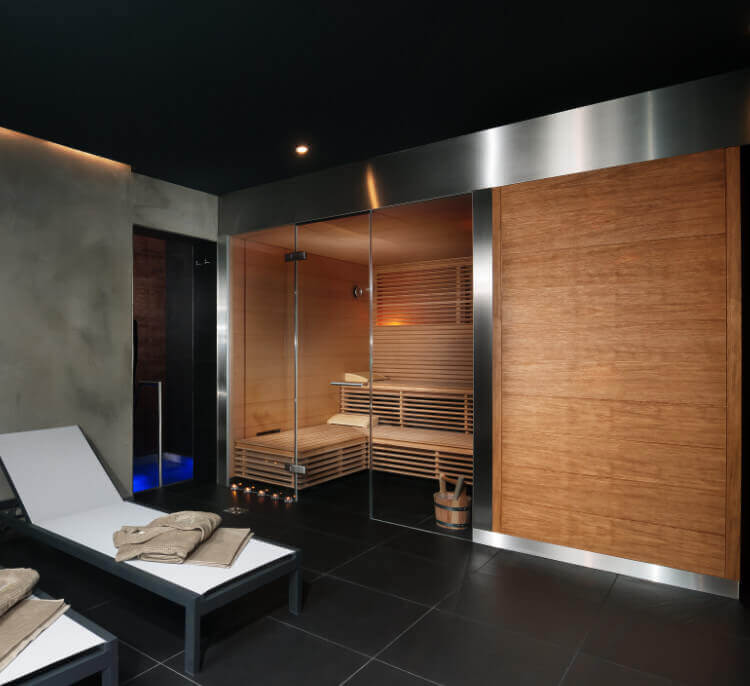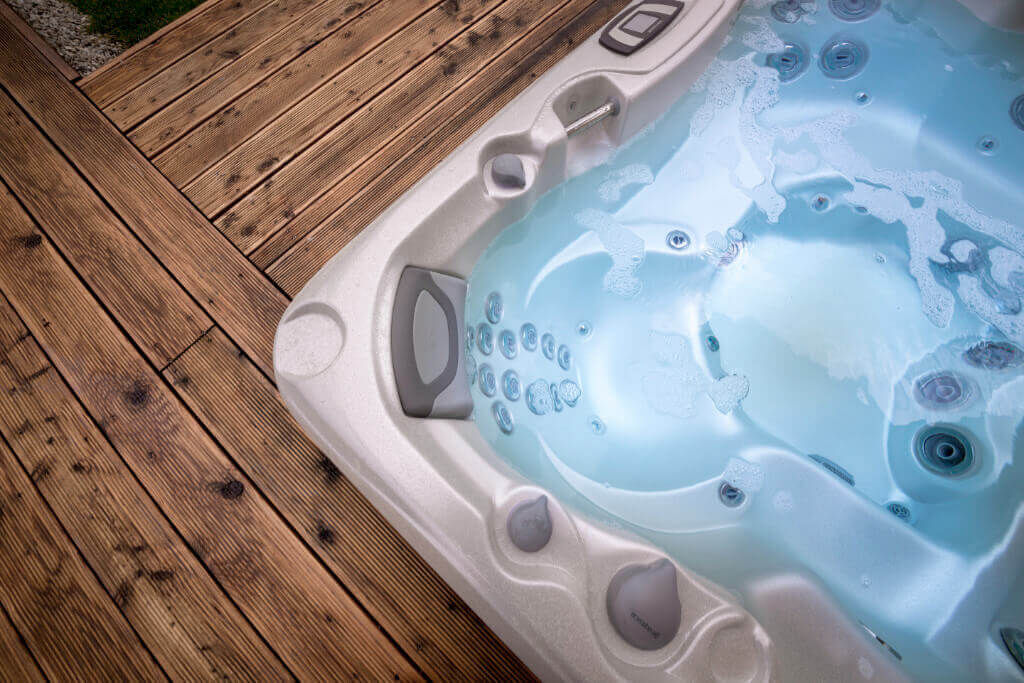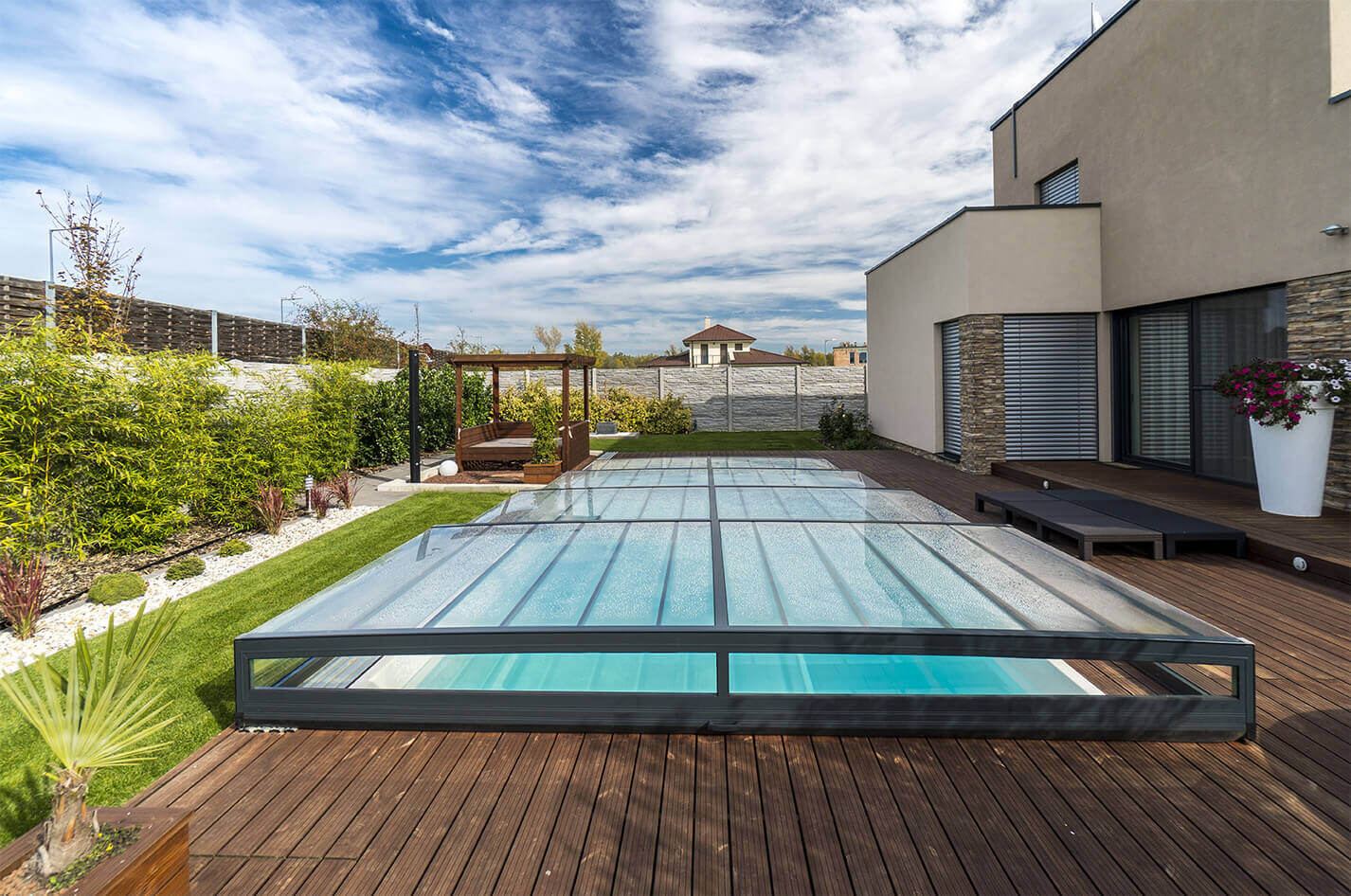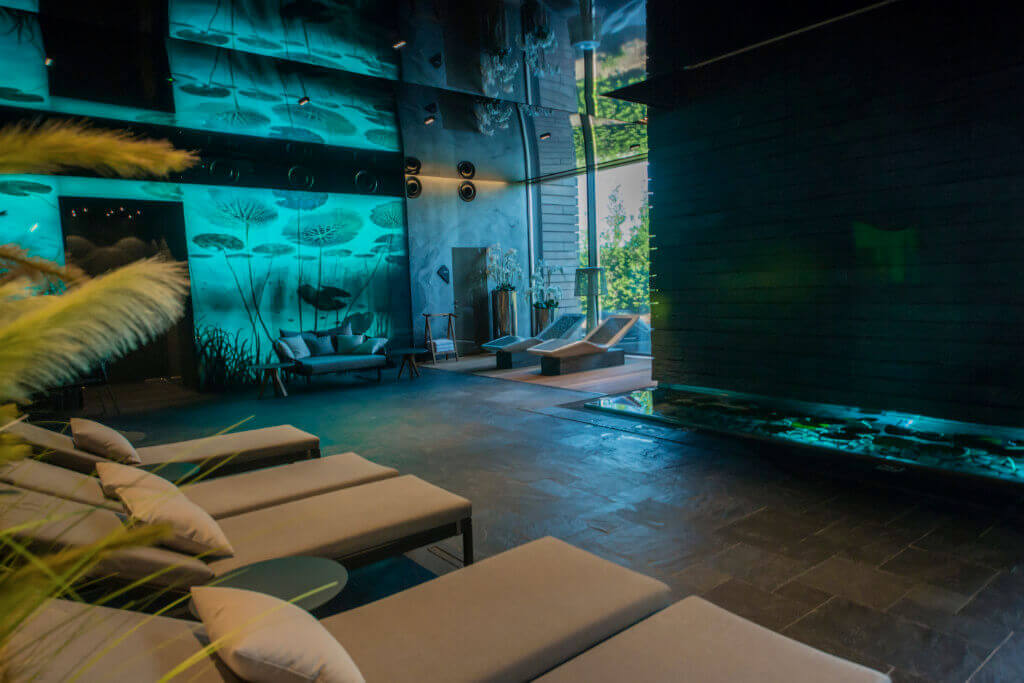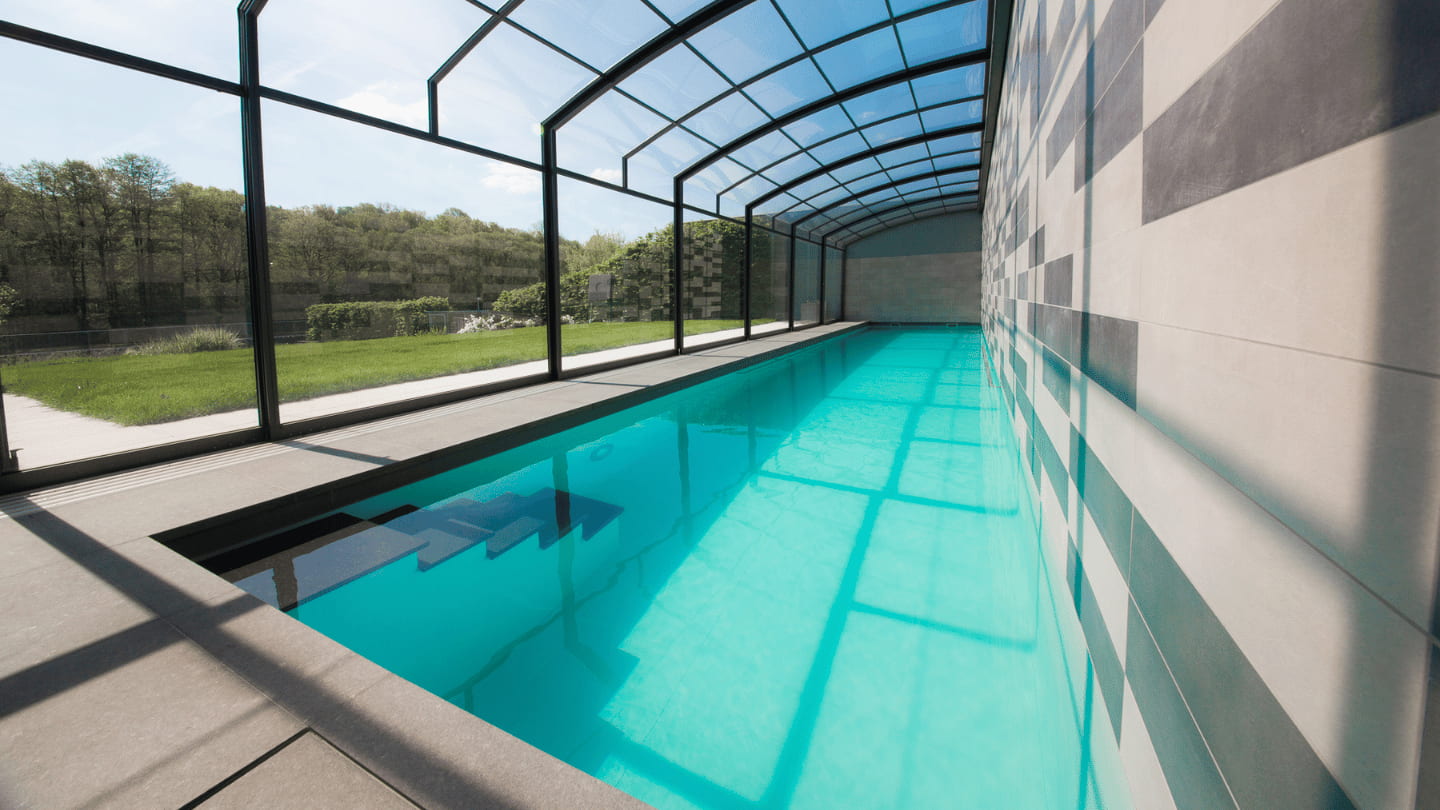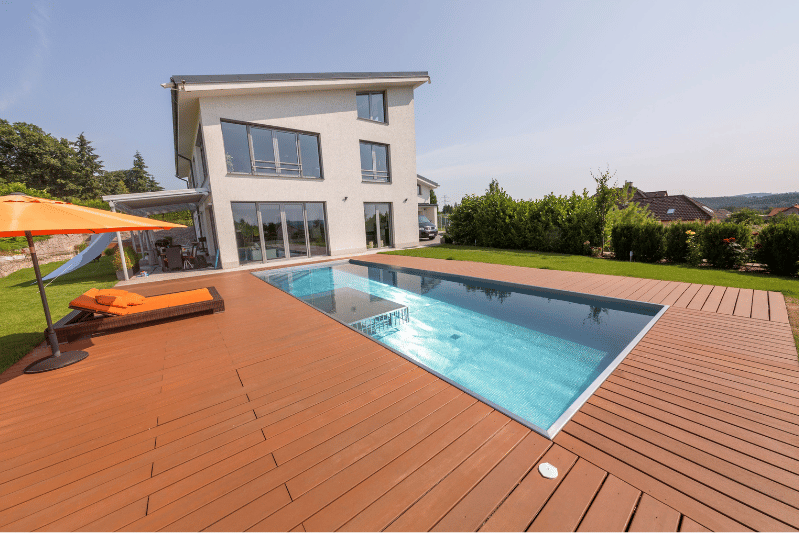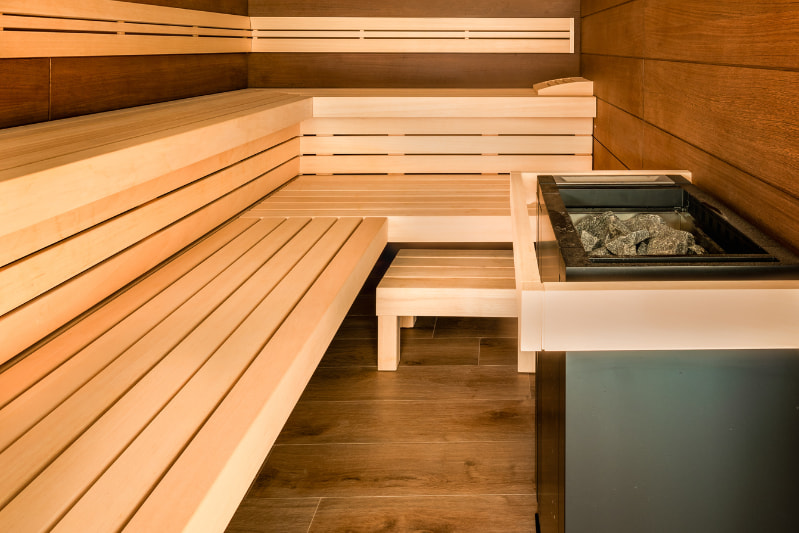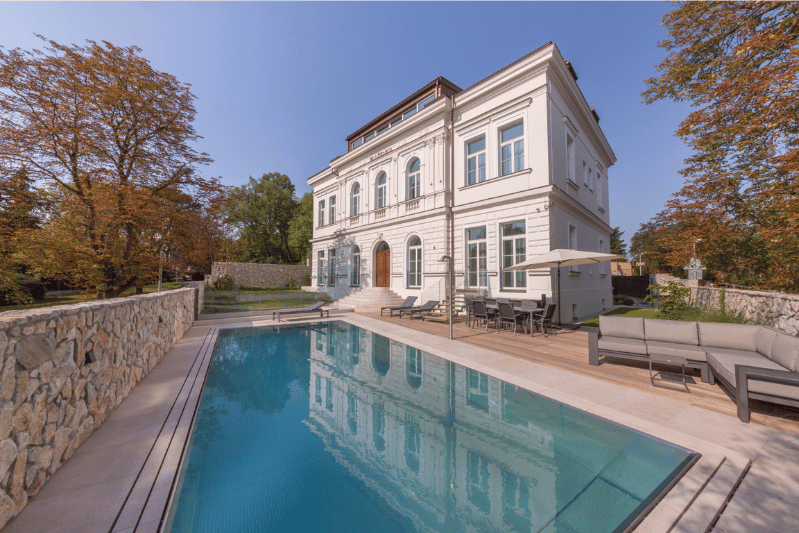How to clean a swimming pool without chemicals and chlorine?
In today’s article, fans of gentler methods of pool disinfection will find what they are looking for, as well as allergy sufferers or people suffering from, for example, atopic eczema or other skin diseases. We will also look at the topic of cleaning the pool with chlorine and its effect on health.
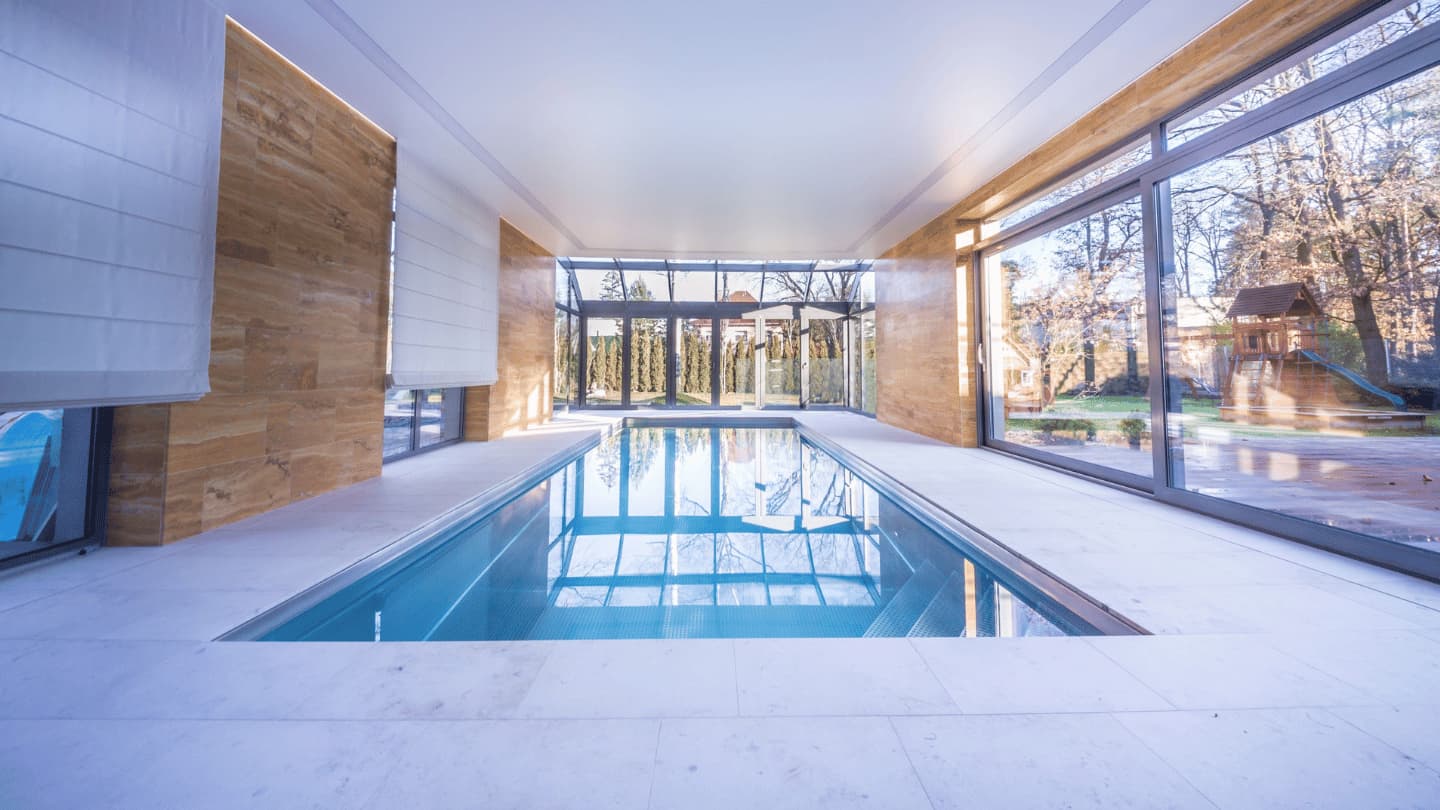
The summer months invite you to swim in the pool or the swimming pools. Those of you who have your own pool certainly know that pool maintenance is the most challenging in the summer months. But how do we limit unpleasant chemicals or clean the pool completely without chemicals or chlorine? Is it even possible?
How to clean a pool without chemicals – alternatives, the use of chlorine
Nowadays, some alternatives can help you reduce the proportion of chemicals in the pool. But it’s important to mention that these alternatives are not omnipotent. If you want to have your pool well cleaned, you can’t avoid chemicals.
Cleaning the pool – what is the basis
All swimming pools (even indoor ones) are regularly polluted. One type is pollution in the form of attacked insects, pollen, bird droppings, grass, leaves, or stray animals such as moles or mice.
However, the main source of pollution is man himself. When bathing, sweat, dead skin parts, mucous and sebaceous secretions, cosmetics, soaps or sunscreens get into the water. Chemistry itself can also do its job. Even with sufficient showering, the body cannot be completely cleansed.
In order to reduce the use of pool chemicals, the first thing to do is to use the filter correctly – clean and rinse it regularly. Another important practice is to regularly test and maintain proper pH and chlorination.
For the human body, the optimal pH value is between 6.8 and 7.6. Water has a neutral pH of 7. Alkaline water reduces the effects of disinfectants and other water treatment products. It also reduces the effects of filtration. In acidic water, on the other hand, your swimsuit will fade and the concrete and metals will corrode in it. There are also several alternatives to conventional chemicals, in the following section you will learn how to effectively clean your pool without chemicals.
The use of chlorine in a swimming pool and its possible impact on health
Many people are interested in alternatives to pool chemicals from retirement, chlorine allergy, or people with atopic eczema or people with asthma who are more sensitive to pool chemicals.
Chlorination is the most common way to purify pool water. However, chlorine is a poison that some doctors have warned against in the past.
If the amount of chlorine in the pool is adequate, then chlorine should not bother swimmers. The problem arises only when the chlorine in the pool smells too much. This suggests that chlorine has bound to sweat particles or cosmetics in the water to form chloramines, harmful compounds that cause the following problems: skin irritation, itch, redness of the skin and eyes, women’s problems a various allergic reactions.
Doctors therefore warn against public swimming pools, where an unhealthy environment is created when large amounts of chlorine are combined with chromic acid and nitrites, which are formed when sweat and other impurities are brought into the pool.
Garden pools contain much less chlorine and, of course, they will not pollute you to the same extent as public pools can get dirty. However, if you can’t tolerate chlorine at all, start using techniques that will help reduce the amount of chemicals needed in the pool.
How to clean your pool water completely without chemicals
Water filtration
A high-quality filtration system is the basis for the successful removal of impurities and water pollution. Maintenance includes checking the filter media and cleaning the filter.
Use natural disinfectants
Instead of chlorine, use ozone, an ultrasonic system, or water ionization to clean your pool. These methods are gentle, yet effectively remove bacteria and microorganisms.
If you use a UV lamp, you need to add an anti-algae product. In the case of ozonation, long-term disinfection is not guaranteed and can be harmful in the event of an accident. Pool salt in combination with a solinator is also a suitable substitute. Electrolysis breaks down salt and releases free chlorine, which does not irritate the eyes or skin and does not smell. Salt water is more aggressive to corrosive materials such as metal. It is necessary to have a salt-resistant pool.
Peroxide is also offered, but it is not reliable in killing microorganisms. It is necessary to use stabilizers for it. Last but not least, there is polymer-based disinfection. It is a gentle remedy for the pool and for health. It is effective against eyelashes and does not irritate the skin. It is an ideal disinfectant for swimmers, allergy sufferers and asthmatics. And maybe the method you are looking for. However, the acquisition cost is higher.
Regular pool cleaning
To keep your pool clean and healthy, it’s important to clean your pool regularly. Regularly remove all debris, branches, leaves from the pool and remove accumulated oils and greases from the water surface.
In order to be able to clean the walls and bottom without chlorine after winter, you can use a solar ionizer. The ionizer uses energy from the sun to break down impurities in the water. The solar ionizer produces copper and silver ions, which have a disinfecting effect and kill algae and bacteria. In combination with mechanical cleaning, you will achieve good results.
Baking soda helps you balance your pH naturally. In case you want to keep your pool in top condition, it is advisable to apply baking soda every other day. This is a quick and inexpensive way to increase the alkalinity of your pool. Be careful when adding baking soda at a saltwater pool. We recommend that you consult a professional first.
How to clean a pool with chemicals, but without chlorine?
If you are allergic to chlorine, but you don’t mind chemistry as such, then there are oxygen-based preparations. You need to get a whole set of chlorine-free chemicals, as they cannot be combined with chlorine. You can fill the pool with regular water from the mains, but it is not advisable to switch to chlorine again in the middle of the season.
You also need to get special testers for O2 and pH levels. Maintaining your pool using oxygen will cost you approximately 4 times more. You pay more for the products themselves and have to use them in larger quantities. Oxygen chemistry is therefore suitable for the maintenance of small children’s pools or whirlpools.
Another less common method is the use of bromine. This technology is mainly used in whirlpools. Bromine technology is well effective in warm water. It is suitable for smaller pools and hot tubs. You can replace chlorine with bromine completely, it is more stable and smells less. You will pay about CZK 100 more per kilogram of disinfectant.
The latest trend is disinfection through oxygenation. The device is inserted after the classic sand filtration. It is especially suitable for indoor pools so that chlorine does not penetrate into other rooms. This type of disinfection is switched on only occasionally to destroy germs using the shock method.
Bio-pools, where the water is cleaned by a pump with a biofilter, are becoming increasingly popular. Although it is a more expensive method, the swimming pond is a 100% natural solution and the cleaning function is taken over by aquatic plants. Dirt and bacteria form a so-called biofilm on the biofilter, which needs to be mechanically removed. Special fertilizers containing nitrogen are then regularly added to the system.
Don’t have a pool yet and are you planning to get one this year? Aquamarine Spa offers high-quality and designer fiberglass, concrete or stainless steel pools along with technology that adapts to your wishes and needs. Get a detailed quote.
